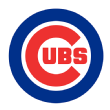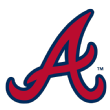For all the attention we devote to the concept of pressure in the sports world, it's a maddeningly elusive concept. There is so much that goes into it. Internal expectations. External expectations. The stakes at play. The unstoppable ticking of the clock. And context is big in this, too. As much as we love baseball and relish the potboiler that is the big league postseason, it's not the same kind of pressure that, say, a brain surgeon faces on a daily basis.
Of course, even in the case of our imaginary surgeon, we can't say how much pressure there really is. Perhaps he is such a cool character that working on another human's brain is all too routine. At least you'd hope so. But it's kind of the same in sports. What is a pressurized, stress-inducing situation to one athlete might be a source of pure exhilaration to another.
As we size up this year's big league playoff field, we can't say which teams feel or don't feel pressure and, if asked, all of them would probably say that they don't feel any. It's what you're supposed to say. What we can take a stab at is identifying which teams should feel the most urgency. It's clearly an external expectation, but really that's all we have.
Bill James has a system he developed that he called "happy years." The idea is to figure out which team deserves to win the title most in a given year. It's based on things you'd expect: How long it has been since a team won the World Series. How long since it won a pennant. And there is a "knocking on the door" factor that looks at how many good recent seasons a club has piled up without winning it all.
The system is a positive one. It's about helping us appreciate certain teams and deciding who we might root for if our primary team is out of the running. The system I present today is not a positive one. It's cynical. This system is a "you'd better win the damn thing already" kind of deal.
Mostly I'm borrowing James' system as is, only viewing it through the more cynical prism. But I've added another factor, which is impending free agents. I've calculated how much WAR a team's potential free agents are worth, leaving aside those who will be under club options. This is meant to emulate a "closing window" effect, the kind that can heighten the urgency of a club to win in a given season.
With that addition to James' system, here is a ranking of this year's playoff combatants by "pressure points."
Pressure points: 298.0
If not for years since winning the World Series, the Dodgers would not have such a firm hold on the top spot of these rankings. But it has been 30 years since the Kirk Gibson game in 1988, which sparked L.A. to its last crown. Only 10 teams have a longer drought. (We're only including years since a team has existed. Padres fans don't get to claim, "We haven't won the World Series since the Big Bang.")
Los Angeles won last year's NL pennant, so there are no points there, but they are one of three teams to have the maximum of 120 points for "good" seasons without winning it all, along with the Yankees. (All categories are capped at 120 points.) You know this: This year is the Dodgers' sixth straight as the NL West champion, but they are still looking to snap that title drought.
Finally, the Dodgers are the only team to max out on free-agent points. Clayton Kershaw, who can opt out, and Manny Machado are the big fish in that pool.
Pressure points: 239.6
Even if we didn't cap the categories at 120 points, the Indians' 69-year title drought wouldn't be enough to move them ahead of the Dodgers. Cleveland was in the 2016 World Series, so there is only a one-year title drought. But the Indians also rank fifth among all teams in the "good" year scale. I guess I should explain James' definition for this: It's a season in which a team doesn't win the title but either makes the postseason or wins 90 games. The system is weighted so that the most recent years count more, i.e., the "knocking on the door" effect. Cleveland has had good seasons in three of the past five years, not including this one, which would be another good season if the Indians don't win it all.
Pressure points: 230.1
The Yankees' title drought has reached eight years. Fans of many teams would laugh at the notion of referring to that as a drought, but fans of other teams don't follow a franchise that has won 27 championships. The Yankees haven't won a pennant during that span, either. Also, as you might expect from a team that's working on a streak of 26 straight winning seasons, New York hasn't had a losing season since Bush was in the White House. No, the other Bush. Only the past 20 seasons are considered for the good season category. New York has had 15 good seasons during that span, including last season.
Thanks to a number of their in-season pickups, New York also ranks third in free-agent points. Andrew McCutchen, Zach Britton, J.A. Happ and Lance Lynn can all hit the market.
Pressure points: 205.5
The Brewers haven't won a World Series or a National League pennant since the Big Bang. If I designed the system differently, they would have a pressure points total that could only be narrated appropriately by Carl Sagan. But the Brew Crew has been around since only 1970, along with one campaign as the Seattle Pilots. They won an AL title in 1982, when the jerseys didn't have buttons. That's the main thrust of Milwaukee's rankings here. The Brewers' last good season was 2011, which was when they last won the NL Central. (Last year's 86-win, non-playoff season doesn't count.)
Pressure points: 201.7
No titles since 1989 and no pennants since 1990. Plus, Oakland has had two streaks of good seasons during the past two decades. The A's had good seasons each year from 2000 to 2004 -- the Moneyball era, which didn't yield any titles or pennants. They had another streak from 2012 to 2014.
Pressure points: 198.2
This isn't a 2004 level of pressure for the BoSox, and if there was a category for "enters the playoffs with the most regular-season wins," they might rank even higher. Boston hasn't won a title or a pennant in five years (boo-hoo!), but for the most part the Red Sox have posted good seasons, which is why they are tied for third in that category. Also, Ian Kinsler, Steve Pearce and Nathan Eovaldi are all headed for free agency, and David Price can opt out.
Pressure points: 171.0
Once upon a time, the Braves would have been the kings of the good seasons. As it is, even within the 20-year window we look at for those, they had one every season from 1998 to 2005. It has been a while, though, with the last one coming in 2013, right before a rebuilding project began that resulted in this year's NL East title. It has been 22 years since the Braves won the title and 18 since their last pennant. Those great Smoltz/Glavine/Maddux/Chipper teams don't seem that long ago, but they were.
Pressure points: 146.2
The Rockies haven't won a World Series since the Big Bang. They did win a pennant in 2007, but good seasons have been few and far between. Last year's wild-card loser was their first since 2009. Only three of the past 20 qualify. The Rockies do have a couple of impact free agents in Adam Ottavino and DJ LeMahieu.
 9. Chicago Cubs (Eliminated)
9. Chicago Cubs (Eliminated)
Pressure points: 92.1
Well, this one didn't last long, as the Cubs lost to the Rockies in Tuesday's thrilling NL wild-card game. You wouldn't know it if you spent the 2018 season in Chicago, but the Cubs remain in a low-pressure situation one year removed from their 2016 drought-busting championship. The Cubs also aren't burdened with the knocking-on-the-door effect: Only four of their past 20 seasons have qualified as good seasons. (Remember, the 2016 season doesn't count. Winning the World Series is a GREAT season.) Daniel Murphy and Jason Heyward, who can opt out, are the impact free agents on the Chicago roster.
 10. Houston Astros
10. Houston Astros
Pressure points: 77.8
Without the free-agent components, the Astros would be pressure-free, as in zero pressure points. That's how James designed his system. If you win the title, the gauge resets to zero. Houston does have some brand-name free agents, though. Charlie Morton and Dallas Keuchel headline that bunch. Still, the Astros are coasting from the first championship in franchise history. Another one this time around would be gravy.

 1.
1.  2.
2.  3.
3.  4.
4.  5.
5.  6.
6.  7.
7.  8.
8.